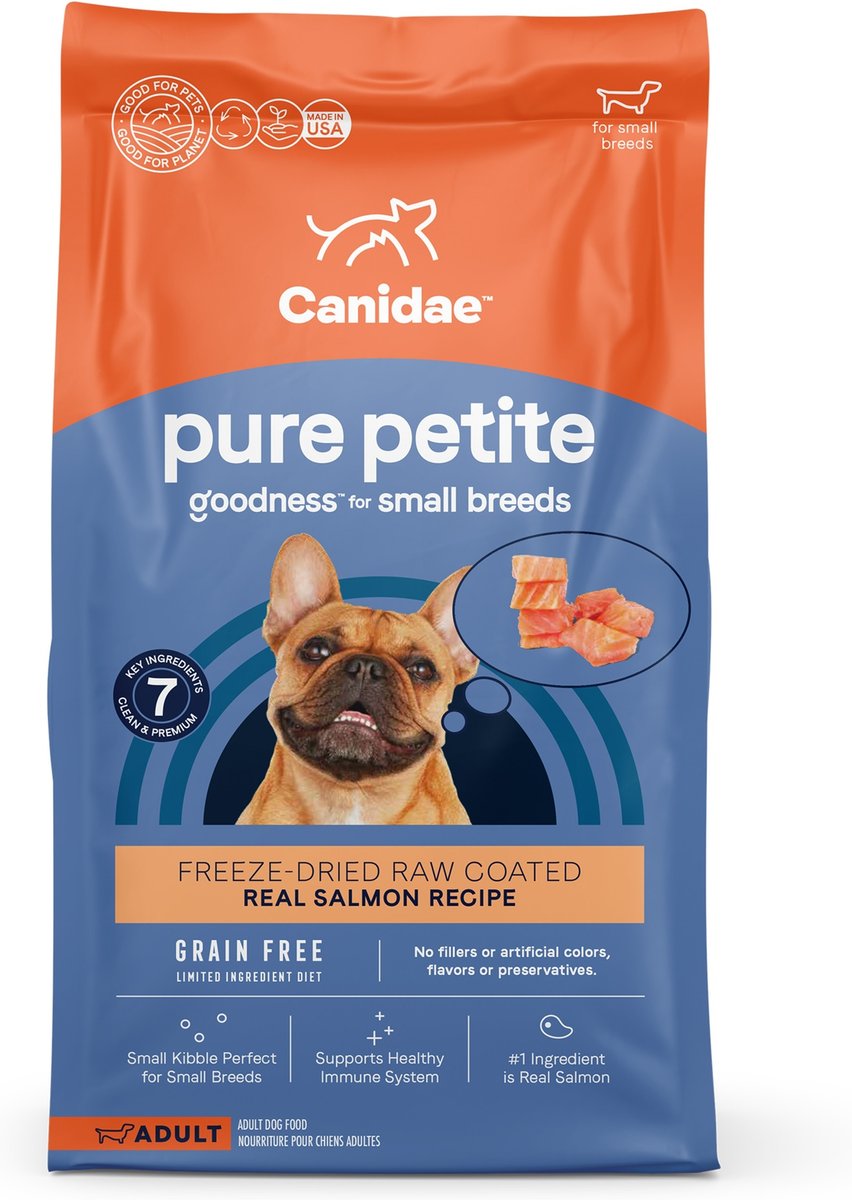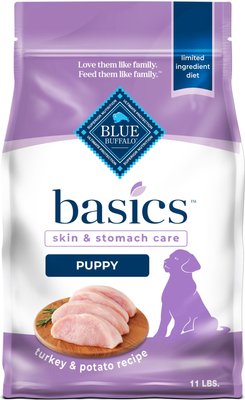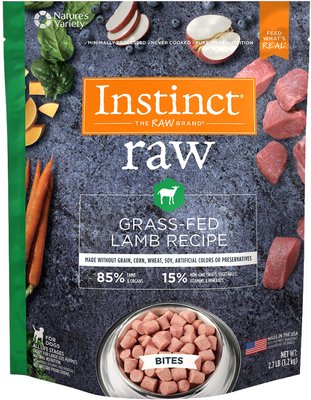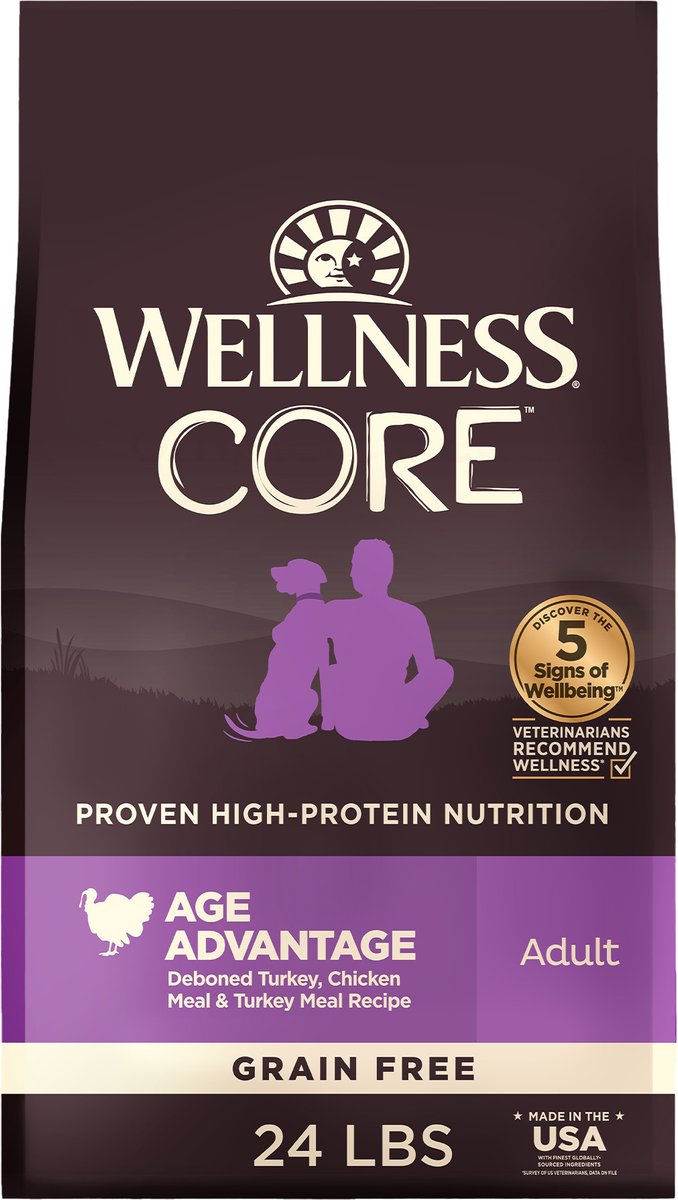What are the Best Dog Foods for the Havanese?

The Havanese is a sweet but sassy breed known for their soft silky coats and overall cheerful attitudes. Their calm dispositions and smaller builds make them easily adaptable and great city dogs, although your Havanese is likely happy wherever you are. To keep them healthy and happy, it's important to provide them with great nutrition from high-quality food. Our team breaks down the unique nutritional needs of the Havanese and makes our picks for best puppy, adult, and senior dog foods.
Jump to section
Breed Info
Breed Group:Toy | AKC Havanese Profile
Ideal Weight:Female Adult: 9 to 11 pounds
Male Adult: 9 to 11 pounds
Exercise Need:20 to 40 minutes per day
Breed Summary
As you probably know by now, your charming Havanese is the social butterfly of pups. A dog breed that moves with both confidence and elegance, they quickly catch the eye of admirers and your furry family member is all too happy to oblige. Don’t be surprised if walks take you twice as long - being friendly is a full time job! Their long silky coats can be a beautiful attribute if well maintained but many find the grooming rituals necessary for a longer coat too taxing. Thus, most Havanese sport a clipped coat, hairbows or clips are welcome!
Although considered a “toy” breed, your pip has a sturdy little body and is quite playful. While only requiring about 30 minutes of activity a day the Havanese is known to excel at many different dog sports including agility, flyball, obedience, Rally, and conformation.
Unsurprisingly, your fur baby loves family, friends, and strangers with equal fervor. A dog that gets along well with other animals, the Havanese is an excellent choice for families with multiple pets and is known to bond deeply to its family. This can also cause them to be prone to suffering from separation anxiety if left alone too often.
The Havanese is eager to please and, as a result, is a true joy to train, picking up new skills with ease. They are particularly adept at therapy work and make excellent service dogs. An incredibly smart breed, the Havanese can be quite cunning, training you to its advantage. We like to think of them as little politicians. A dog of the people who is masterful at getting their way! It’s hard to say no to their cute little faces, but try to prevent too much manipulation by staying firm and not giving in.. or at least not often.
Physical Traits
Elegant, sturdy, hardy, active energetic
Personality Traits
Devoted, loving, affectionate, intelligent, happy
Health Considerations
-
With the small havanese frames, there are some potential health issues to look out for, many of which can be avoided or helped with proper nutrition. In fact, providing great nutrition is the most important thing we can do as pet parents to keep pets healthy and happy. With that in mind, here are some considerations that our phd nutrition team factors in when recommending the best dog food for havanese.
-
Eye
cataracts are frequently found in havanese. Although it is commonly inherited and appears mostly with old age, these clouded eyes can occur at anytime. While surgery is the most effective solution for many eye issues, there are many nutrients that help to support general eye health and can keep your havanese’s vision in prime form. When we analyze food options, we look for the following ingredients:
Recommendations:
Anthocyanins・ Astaxanthin・ Beta-carotene・ Carotenoids・ Glutathione・ Lutein・ Lycopene・ Omega-3 essential fatty acids・ Phytonutrients・ Vitamin A・ Vitamin C -
Heart
Supporting great heart health in your havanese should be a major priority, and many foods and supplements have been good about including ingredients that help with this (and overall healthy bodies). Some common heart issues with havanese are tough to prevent, like heart murmurs and mitral valve insufficiency, but regular vet visits should be part of your routine. Our team loves to see these ingredients in food to support healthy hearts:
Recommendations:
Antioxidants・ Carnitine・ Complete protein・ Low sodium・ Omega-3 fatty acids・ Taurine -
Hip and Elbow Dysplasia
Bone and joint issues are common in havanese and can be genetic or develop over time with wear and tear. Common problems include hip dysplasia or elbow dysplasia, chondrodysplasia, legg-perthes disease, luxating patella, and arthritis. In any case it’s important to keep your havanese’s body weight in a healthy range to help avoid or minimize pain. We look for diets that contain these joint-supportive ingredients:
Recommendations:
Antioxidants・ Chondroitin・ Glucosamine・ Green Mussel・ Methylsulfonymethane・ Omega-3 from Fish Oil・ Taurine・ Turmeric・ Vitamin E
Get a tailored nutrition profile for your dog
Our free nutritional assessment tool provides individualized recommendations based on your dog's breed characteristics, age, weight, body condition score, and activity level. It only takes 30 seconds to receive science-based insights to support your dog's lifelong health.
Are Fresh Food Diets Good for Havaneses?
Only if they’re properly balanced.
Many well-intentioned Havaneses parents spend a lot of time preparing meals at home, but health benefits are lost if meals aren’t properly portioned and balanced with all the nutrients dogs need. Recently, a few companies have done an excellent job ensuring accurate portions and nutrient balance by delivering pre-prepped fresh meals customized to the size and needs of your dog. Farmer’s Dog, Ollie and Nom Nom have each been approved by our nutrition team as delivering truly quality and well-balanced meals. They can be a little expensive (usually 3-4x more per day than kibble), but many find the added health benefits worth the cost. They do offer discounts to new customers, though, if you’d like to try one out.
Pros and Cons of Fresh Food Diets
✓ Diets balanced by Nutritionists・ ✓ Customized portions for weight control・ ✓ Superior digestive and immune health ・✕ More expensive than standard dog food
Foods We Recommend for Havaneses Puppies
How long do Havanesess need puppy food?
Until they're 10 to 12 months old.
Havaneses are very focused on growing, and how we feed them should help them do just that. Since they have so much growing to do, they need higher amounts of nutrients than adult dogs, especially proteins, fats, carbohydrates, vitamins, minerals and — don’t forget — water. It’s still important to not overfeed puppies, so make sure to portion food and keep treats to no more than 10% of their caloric intake. Since balance is so important, we recommend that your young Havaneses is eating food that is made just for puppies from a reputable brand.
Find the best nutritional start for your puppy
Our recommendation tool evaluates your puppy’s breed, age, growth stage, lifestyle, and health needs to identify a scientifically appropriate diet from over 10,000 options. Obtain personalized guidance to help support healthy development and lifelong wellness.
Foods We Recommend for Havaneses Adults
When should Havaneses start transitioning to adult food?
When they're 10 to 12 months old
From a nutrition standpoint, Havaneses become adults once they reach about 90% of their expected weight. Once adults, our two key nutrition goals are balance and maintenance. We want balance because a dog’s body is responsible for a lot of things, like digestion, fighting infection, keeping muscles strong, and chasing squirrels. These are all important tasks, so we want to make sure each body function gets its share of nutrients. We also need to maintain a healthy weight. Underfed dogs are at risk for malnourishment, and overfed dogs can become obese — both of which lead to even worse problems for a Havanese
Find the optimal nutrition plan for your adult dog
Our assessment analyzes your dog’s breed, age, lifestyle, and health considerations to recommend a scientifically selected diet from over 10,000 options. Personalized insights to help your dog thrive through adulthood.
Foods We Recommend for Havaneses Seniors
When should Havaneses start transitioning to senior food?
All dogs can age differently, but small dogs like Havaneses can start to benefit from senior food around 8 to 10 years old
Ever watch kids running around the playground and wish you had that energy again? Yeah. Dogs get there, too. The metabolic processes in senior Havaneses slow down as they age, which often means they aren’t needing quite as many calories as they did in their prime. Smart dog food companies have formulated senior diets to ease up on calories but still help them feel full and give them adequate maintenance protein. Still, like humans, everybody is different. Sometimes older dogs need just as many calories, or more, depending on how their bodies progress. So keep a close eye on their body condition, and look for dog foods made for seniors.
Support your senior dog's health with targeted nutrition
Our assessment analyzes your dog’s breed, age, and health considerations to recommend a science-based diet from over 10,000 options. Help maintain mobility, cognitive health, and quality of life.
Affiliate Disclosure:
We do not accept money to recommend pet foods. However, we do receive referral fees from online retailers (such as Chewy or Amazon) on qualifying purchases. Our recommendations are neutral, and diet recommendations are made without considering whether we will receive a referral fee.















